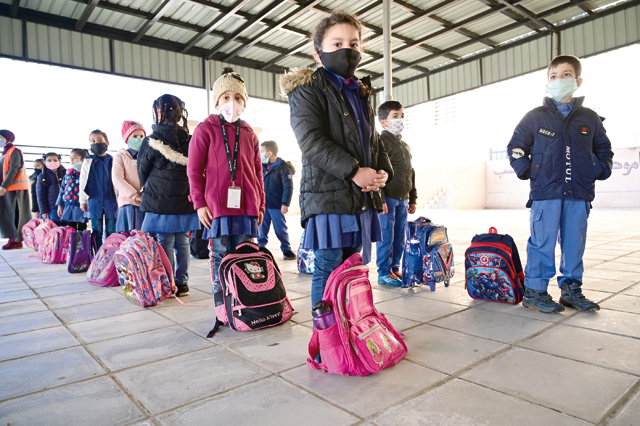AMMAN — The ministries of Labour and Education and the Syndicate of Private School Owners agreed on implementing “Tawkeed” programme in private schools.
The objectives of the Tawkeed programme complement each other ensuring the permanence of the work in private sector establishments, which were closed but recently permitted to resume work such as gyms and private schools, Mohammad Zyoud, spokesperson of the Ministry of Labour, told The Jordan Times.
“To ensure the continuity of the operations of these facilities, there was need for a specific mechanism to ensure the health of workers and visitors in these facilities,” Zyoud said.
All parties unanimously agreed that the health and safety of teachers, students and school personnel, and the provision of a healthy and decent work environment, is “an unquestioned priority”, according to Zyoud.
“We have provided private schools with health inspectors, who ensure the implementation of work protocols and health measures in schools and kindergartens,” Zyoud added.
The inspector’s job is to make daily reports on the facilities and the extent of their commitment to the health measures. The inspector is also responsible for sending reports to the supervisors and then the control unit in the Labour Ministry, Zyoud told The Jordan Times.
“If any school has any violation of the Defence Order No. 25, it gets shut down. This way only violating facilities get closed instead of closing the entire sector,” Zyoud noted.
The inspectors’ salaries are borne by the institutions that they monitor. This distribution is made with the aim to not put a large financial burden on any of them, Zyoud noted.
“Our goal is to achieve a balance between the economy and health,” he added.
Zyoud noted that the mechanism for distributing health inspectors to private schools and kindergartens will be according to the number of students: One inspector is assigned to every four institutions if the number of students in each of them ranges between 26 and 100 students, one for every 3 institutions if the number of students in each of them ranges from 101 to 250 students; one for every two institutions if the number of students in each ranges from 251 and 400 students, and one inspector per school for institutions having 401 students or more.
“If a nursery or a kindergarten has less than 26 students, the health inspector is provided free of charge and will instead be paid by the Ministry of Labour,” he added.
Zyoud said that the priority was given to holders of certificates to practise the profession of occupational safety and health supervisor. Around 26,000 applications have been submitted.
“Priority in recruitment was given to certified health inspectors. All inspectors have received the necessary training,” he noted.
